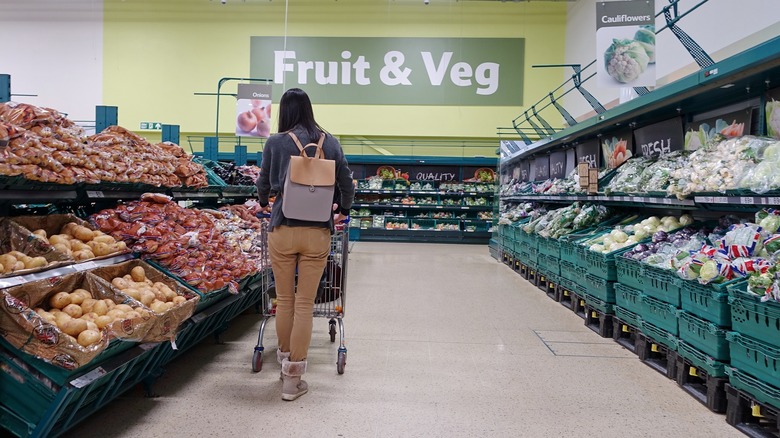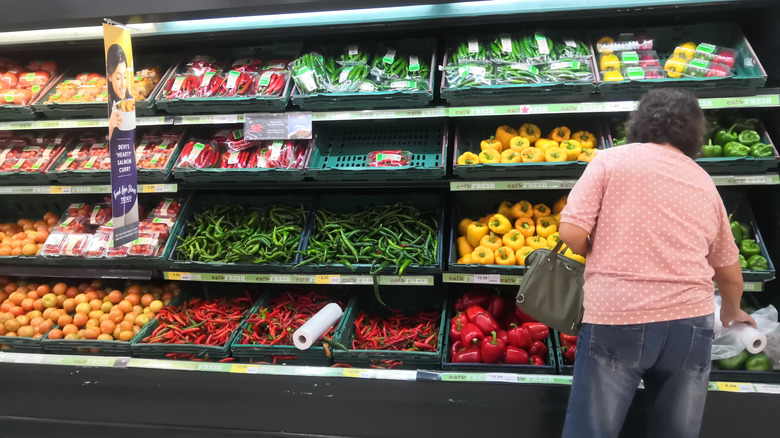Britain's Largest Grocery Stores Are Limiting Produce Purchases
Within the last few months, British grocery stores have undergone quite a few changes. In light of inflation, some U.K. supermarkets have added security stickers to dairy products, while others have seen canned foods fly off the shelves. Meanwhile, supermarket giant Tesco has had to fight suppliers over price increases. It's safe to say it's a strange time for British grocers.
Now, however, British supermarkets are bracing for yet another change, as a result of Britain's fresh food shortages. The U.K. government has blamed the subpar weather conditions on a worse harvest than usual — so, you can blame climate change for restrictions at corresponding grocery stores.
"As advised to our customers through signage in our stores last week, adverse weather conditions in Spain and Morocco have recently impacted the availability of certain salad items across the supermarket sector," a Lidl spokesperson told The Guardian.
Adding to the rationale, British farmers have also faced higher energy costs than usual and therefore haven't produced as many fruits and vegetables as they have in previous years. That situation, when combined with the unpredictable weather outputs for harvests in Southern Europe and Northern Africa, has interfered with produce imports at large.
The result? A reduced harvest, less-than-stocked shelves, and new restrictions on the amount of produce supermarket customers can purchase.
You may want to rethink that salad
The rationale for limiting produce purchases remains consistent across British grocery stores. However, the manifestations of such limitations may look a little different, depending on where you shop.
Tesco, Asda, Morrisons, Lidl, and others have each opted to restrict the amount of produce a customer can buy. As Britain's largest grocery chain, Tesco has specifically chosen to limit the purchase of tomatoes, cucumbers, and peppers. Each Tesco customer can leave the store with up to three of these products — and nothing more. Lidl has adopted the same rationing system.
Meanwhile, Asda has similarly chosen the rule of threes, but to limit lettuce, salad bags, raspberries, and cauliflower. Morrisons has taken things a step even further with a two-item limit on, yet again, cucumbers, tomatoes, and peppers — as well as lettuce.
As for how long the produce restrictions will last, Andrew Opie — the director of Food and Sustainability at the British Retail Consortium — estimated a few weeks, per CNBC. Until then, make sure to savor your favorite vegetables and put them to good use.

